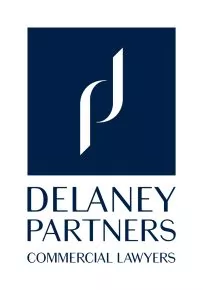Recent Bahamian companies' law reform that took effect during 2012 introduced the shadow director1 concept which provides a direct means of accountability under company law of persons who in fact had influence over the management of a Bahamian company.
What is a "shadow director"?
"shadow director" means, in relation to a company, any person in accordance with whose directions or instructions the directors of the company are accustomed to act, but the person is not deemed to be a shadow director by reason only that the directors act on advice given by him in a professional capacity.2
What are the implications for financial advisers, shareholders and creditors?
If a person is deemed to be a shadow director, he will take on all the legal obligations and liabilities of a formally appointed director/officer under the relevant Companies Act provisions.
Shadow directors have been referred to in early English common law by a variety of colourful epithets such as 'lurking in the shadows', and 'puppet masters'. Early cases descriptively imply a high threshold of control necessary to fulfill the role of shadow director. Later English cases, however, provide more structured limitations to the term and a purposive approach to its interpretation, translating to a lower qualifying threshold.
In the English decision of Re Hydrodam (Corby) Ltd3 it was stated that in order to be a shadow director, the person must have voted or given directions to the company. The English case of Re Unisoft Group Ltd (No 3)4 continued with this relatively high threshold for shadow directors, determining that the control they had to exert had to be akin to a puppet master or the 'cat's paw' controlling the actions of the board. If the whole or the majority of the multi-member board of directors were accustomed to act on his or her directions, that person was considered a shadow director.5
Later cases of Secretary of State for Trade and Industry v Deverell, and Re Mea Corporation provide less colourful, but arguably more helpful, guidance in determining who or what defines a shadow director. In the Deverell case, the mischief rule approach was adopted. Lord Justice Morritt stated,
'The purpose of the legislation is to identify those, other than professional advisers, with real influence in the corporate affairs of the company. But it is not necessary that such influence should be exercised over the whole field of its corporate activities.'6
The determination of whether it was a direction or instruction was to be 'objectively ascertained by the court in light of all of the evidence;'7 and it was clear that the board must be accustomed to acting on the instructions or directions of the shadow director.
The essential test, then, is whether real influence was exerted over the corporate governance of the company by the person.8 In a recent case, three factors were identified, the primary one being whether the person acted on equal footing with true directors.9
This lower threshold is important for advisers, shareholders or creditors who risk being deemed shadow directors under the new legislation. For example, if shareholders in small companies take an active role in running the affairs of the company in order to protect their investment, they may be deemed to be a de facto or shadow director of the company.10 In addition, financial advisers or even consultants who take on watch-dog or adviser roles may also be deemed to be shadow directors.
In the case of Re Tasbian,11 a financial adviser and chartered accountant, Mr Nixon, had negotiated an informal moratorium with the company's trade creditors, monitored Tasbian Ltd.'s trading on a monthly then fortnightly basis, negotiated on the company's behalf with the Department of Trade and Industry and the Inland Revenue, obtained an alteration of the company's bank mandate to add himself as counter signature, negotiated a proposed take-over of the company, and proposed and implemented a group structure including the hive off of employees to a shelf company. While none of these activities on their own were offensive to the role of a financial adviser, the combination of them were determined by the court to potentially take Mr Nixon's actions beyond that of merely a professional advisor and into the realm of a shadow director. As a result, there are instances where professional advisers can become shadow directors of companies. It is also possible that creditors, including banks, who take on active management roles may be deemed to be shadow directors,12 but likely not if they are solely acting to protect their interests in a company.13
The English judicial view of shadow directors has changed over the years, lowering the threshold of who may qualify. Bahamian courts are likely to follow that purposive approach in interpreting the new statutory definition of shadow director, i.e. the Deverell test of real influence, with no hard and fast delineation between acting as both de facto and shadow directors.
Bahamian company law now:
- empowers14 a liquidator to require a shadow director to submit to the liquidator a statement of affairs of the company;
- obligates15 the shadow director to co-operate with the liquidator and subjects the shadow director to being examined by the liquidator;
- brings shadow directors within the meaning of an
"officer" for purposes of liability –
- for facilitating a transaction in fraud of creditors;16
- for participating in misconduct in the course of
the liquidation by impeding the work of the
liquidator;17
- for making material omissions in the company's statement of affairs;18 and
- to a make a contribution in circumstances of insolvent trading.19
Shareholders, creditors and financial advisors of Bahamian companies, should understand that the ultimate goal of the shadow director concept is to regulate, and protect the public from, unelected persons taking on a corporate management role.
Overly active shareholders of private companies, overbearing creditors and intrusive advisers who take on substantive management involvement in Bahamian companies, may well find themselves in the light now being shone upon shadow directors.
Footnotes
1 See Companies (Winding Up Amendment) Act 2011, International Business Companies (Winding Up Amendment) Act 2011, and the Companies Act (Chapter 208), Companies Liquidation Rules 2012.
2 Section 183, Companies Act (as amended by the Companies (Winding Up Amendment) Act 2011).
3 [1994] 2 BCLC 180
4 [1994] 1 BCLC 609
5 ibid 616
6 [2001] Ch 340
7 ibid
8 C Hill, 'Shadow Directors: Influence is the real test' (2000) 38(2) Law Society Gazette
9 Elsworth Ethanol Company Ltd v Hartley and others (2014) EWHC 99 (IPEC)
10 Secretary of State for Trade and Industry v Jones [1999] BCC 336, 349
11 [1991] BCLC 792
12 See the US case of State National Bank of El Paso v Farah Manufacturing Co Inc 678 SW 2d 661 (Tex App 1984)
13 Re PFTZM Ltd (in liquidation); Jourdain and others v Paul [1995] 2 BCLR 354
14 Section 196, Companies Act (as amended by the Companies (Winding Up Amendment) Act 2011).
15 Section 198, Companies Act (as amended by the Companies (Winding Up Amendment) Act 2011).
16 Section 229, Companies Act (as amended by the Companies (Winding Up Amendment) Act 2011).
17 Section 230, Companies Act (as amended by the Companies (Winding Up Amendment) Act 2011).
18 Section 231, Companies Act (as amended by the Companies (Winding Up Amendment) Act 2011).
19 Section 244, Companies Act (as amended by the Companies (Winding Up Amendment) Act 2011).
The content of this article is intended to provide a general guide to the subject matter. Specialist advice should be sought about your specific circumstances.



